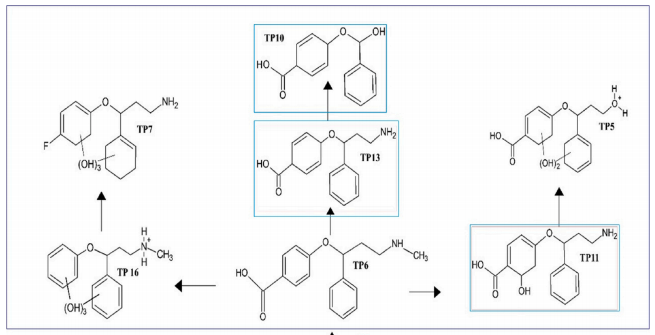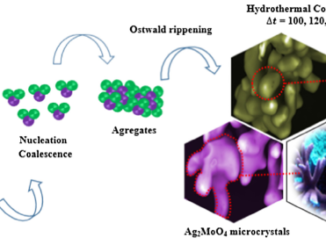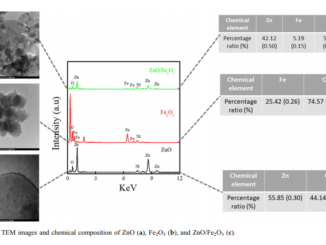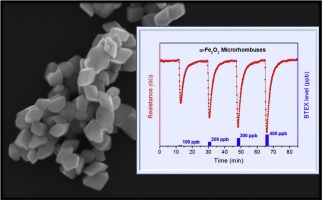
Prozac® photodegradation mediated by Mn-doped TiO2 nanoparticles: Evaluation of by-products and mechanisms proposal
Abstract: TiO2 nanoparticles were efficiently doped with Mn applying microwave-assisted synthesis method. Anatase phase was confirmed by XRD pattern, which did not exhibit the peaks associated with MnOx contamination. Raman spectroscopy showed a displacement of up to 5 cm−1 in the O-Ti-O vibrational mode, suggesting that Ti was replaced by Mn. Oxidation state (Mn3+) was confirmed via high-resolution XPS spectrum of Mn 2p energy level. Incorporation of Mn into the TiO2 network resulted in increased surface area (64.6 m2 g−1), average particle size up to 16 nm, and bandgap reduction of up to 43 %. The photocatalytic properties of the materials were investigated through Prozac® degradation and improvement of up to 14 % (Ti-0.73 Mn) and 26 % (Ti-0.38 Mn) was seen on comparing doped TiO2 versus pure TiO2 during photocatalysis. Furthermore, after Prozac® photodegradation, TFMP was identified as the main by-product while MAEB and PPMA (other by-products) were seen to compete with each other in the degradation mechanism. In addition to the quantitative analysis done for Prozac®, TFMP, MAEB, and PPMA, LC MS-Q-TOF analysis was performed, confirming that in the presence of Mn-doped TiO2, specific by-products were formed, probably due to more oxidizing species being present in this reaction system. The present study has shown unprecedented evidence that the application of TiO2 nanoparticles efficiently doped with Mn promotes Prozac® degradation by specific mechanisms.
Author(s): Moreira, AJ; Malafatti, JOD; Giraldi, TR; Paris, EC; Pereira, EC; Mendonça, VR; Mastelaro, VR; Freschi, GPG
Journal of Environmental Chemical Engineering
Published: December 2020, Volume 8, Issue 6




